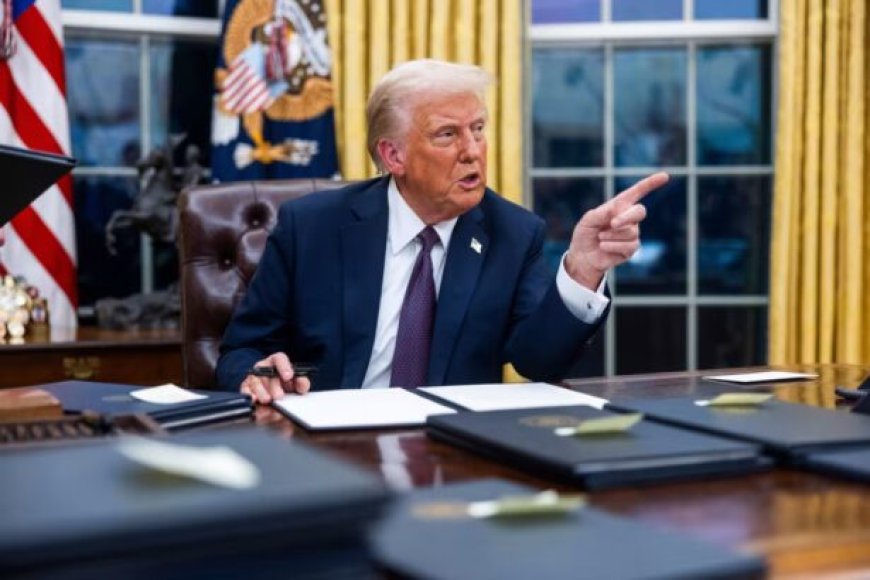Trump Administration Bars Harvard from Enrolling International Students Under Online-Only Policy
The Trump administration has announced new immigration rules preventing Harvard University and other institutions from enrolling international students whose programs are conducted entirely online. The decision has sparked legal battles, protests from academic leaders, and widespread concern over the future of global education in the U.S.

Washington D.C., USA – In a move that has sent shockwaves through academic institutions worldwide, the Trump administration has issued new immigration guidelines prohibiting international students from studying in the U.S. if their courses are offered exclusively online. Harvard University, which had recently announced a fully online academic year due to COVID-19, is among the schools directly impacted.
The announcement, made by the U.S. Immigration and Customs Enforcement (ICE), states that students enrolled in “100% online” programs will not be eligible for F-1 or M-1 student visas. Those already in the country must transfer to institutions offering in-person instruction or face deportation.
“International students will not be permitted to enter or remain in the United States to take a full course load through online instruction,” read ICE’s directive.
Harvard and MIT Sue
In response, Harvard University and the Massachusetts Institute of Technology (MIT) have jointly filed a lawsuit against the Department of Homeland Security and ICE, calling the policy “cruel and reckless.”
“The order came without notice — its cruelty surpassed only by its recklessness,” said Harvard President Larry Bacow. “We believe that the ICE order is unlawful.”
The suit seeks a temporary restraining order to block the policy from taking effect, arguing that it forces universities into an impossible dilemma: reopen campuses and risk public health or lose thousands of international students.
Global Outcry and Academic Fallout
The policy has drawn condemnation from education leaders, foreign governments, and human rights groups. Many see it as part of a broader push by the Trump administration to curb immigration under the guise of pandemic regulation.
“This isn’t about public health. It’s about pushing out immigrants under another excuse,” said Dr. Marwa Elshafey, a policy analyst on education and immigration.
With over 1 million international students contributing an estimated $45 billion annually to the U.S. economy, the ruling could have far-reaching economic and diplomatic consequences.
Students in Limbo
Thousands of international students, particularly from countries like India, China, Nigeria, and Ghana, are now scrambling to understand their status. Many have paid tuition and made plans only to face uncertainty and emotional distress.
Political and Legal Implications
Analysts suggest the decision was politically motivated, aimed at forcing universities to reopen despite ongoing COVID-19 concerns, in line with the Trump administration’s push to restore economic activity and maintain a façade of normalcy ahead of elections.
Harvard and MIT’s lawsuit could serve as a pivotal moment, not only for education policy but also for the broader debate on immigration under the Trump presidency.
What's Your Reaction?




















































































